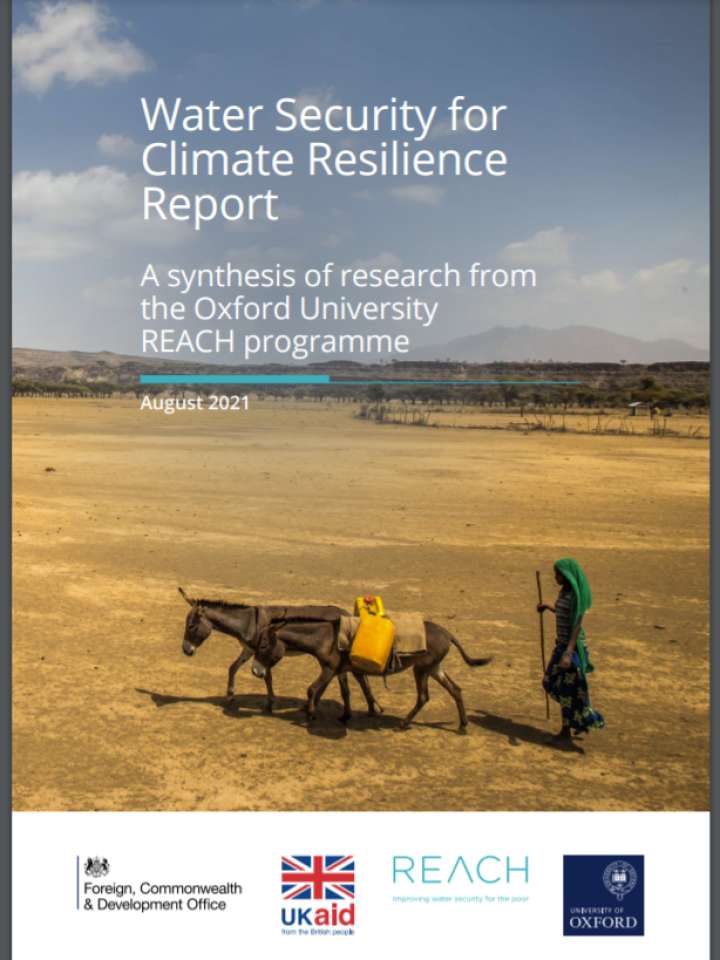Water security for climate resilience report: A synthesis of research from the Oxford University REACH programme
This report presents a synthesis of published and ongoing research by REACH which explores the relationship between water security, climate and climate adaptation decisions, drawing on findings from REACH research conducted in Sub-Saharan Africa and South Asia. Globally, water institutions are working towards climate resilient systems to manage risks from climate shocks, variability and anthropogenic climate change. However, the dominant policy discourse on climate resilience fails to address context-specific climate issues and the distributional impacts of climate events on water security at a human scale. To ensure effective implementation of adaptation actions and reduce the risk of unintended consequences on water security, water policies require more granular analysis and monitoring of ongoing and future climate impacts.
The authors argue that to build climate resilience we need to improve water security of existing water systems. The authors identify three actions to build climate resilience:
- Advancement of accurate and granular analyses of climate risks to ensure climate information is relevant to specific users;
- Improvement of metrics for monitoring climate resilience which will help track progress and inform investment decisions;
- Development of new institutional models that improve water security and enable existing institutions to make climate-resilient decisions.
Explore further
